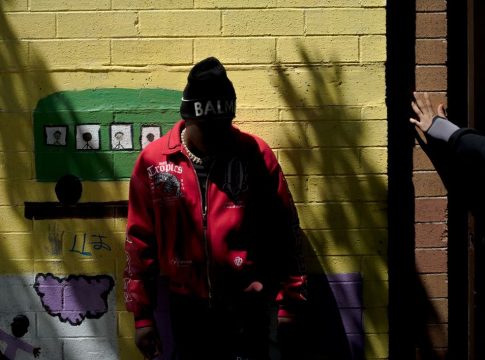Navigating Trauma: The Journey of Resilience Through Choose to Change
A Life Altered in an Instant
On May 11, 2024, T-Man, a 16-year-old from Chicago, faced a harrowing moment that forever changed the trajectory of his life. Hours after enjoying a carefree evening with his cousin, he awoke to devastating news: his cousin had succumbed to an overdose. The shock of such a loss brought a profound grief that T-Man had never before experienced. "This was a person I never thought I’d be closing the casket on," he remarked, revealing the depth of his sorrow.
Coping Amidst Urban Challenges
Living in an environment marked by high rates of violence and trauma, T-Man and his cousin frequently discussed ways to navigate their daily lives safely. With reduced access to supportive resources, many youths in similar situations bear the weight of their community’s challenges, including addiction and mental health struggles. T-Man sought help through the Choose to Change program—a therapeutic initiative designed to support young people through cognitive behavioral therapy (CBT) and mentorship.
Understanding Cognitive Behavioral Therapy
CBT is a form of talk therapy that focuses on present challenges rather than past traumas. Its core objective is to help individuals recognize and reshape negative thought patterns. For youth exposed to high levels of trauma, such modifications can prove transformative, offering pathways to improved emotional regulation, decision-making, and overall mental health.
The Power of Mentorship
The Choose to Change program combines CBT with mentorship to engage hard-to-reach youths, particularly those who may be skeptical of traditional therapy. Participants navigate up to 16 weeks of group sessions while being paired with caring adult advocates. These mentors not only guide young people through therapeutic concepts, but also imbue a sense of belonging and support.
Rising From Adversity
Despite T-Man’s commitment to Choose to Change, the pain of losing his cousin led him to a brief encounter with the juvenile justice system following an altercation. However, while in detention, T-Man found unexpected clarity through the lessons he had learned in the program. He began to reflect on ways to express anger without resorting to violence. For instance, he recalled an analogy involving shaken bottles of soda, which illustrated how bottled-up emotions can lead to explosive reactions if left unchecked.
Setting Goals and Finding Purpose
With the help of his mentor, T-Man began to set achievable goals upon his return to school. This included academic aspirations and emotional expression. As he navigated challenges in school, he took steps to express his frustrations constructively rather than letting them spiral into conflict.
Lasting Outcomes and Community Impact
Research highlights that programs like Choose to Change can significantly reduce the risk of violent behavior among at-risk youth. In fact, studies show that participants had a notable decrease in arrests, both immediately and in the long term. The bond between mentors and mentees is believed to play a pivotal role in this positive outcome.
Practical Strategies for Coping
For those facing similar challenges, consider the following strategies:
- Seek Support: Whether through mentorship or community programs, find someone who can provide guidance and understanding.
- Set Achievable Goals: Small, realistic goals can help build confidence and provide a roadmap for personal growth.
- Practice Mindfulness: Techniques such as deep breathing or journaling can help process emotions and reduce stress.
- Communicate Openly: Find safe spaces to express feelings, whether through conversations with trusted adults or peers.
Conclusion: A Path Forward
T-Man’s journey illustrates the resilience of youth when equipped with the right tools and support. With ongoing guidance from his mentor and a commitment to his own growth, he has continued to thrive. He is now a role model for others, showing that it is possible to overcome adversity and create a positive future despite life’s hardships.
In this path of healing and growth, the importance of community, compassion, and mentorship cannot be overstated. By fostering connections and promoting understanding, we can empower young individuals to navigate their challenges and emerge stronger.

Covers wellness, nutrition, mental health, and daily life tips.
Bio: Talia brings a background in health journalism and holistic living to help readers live better, one tip at a time.

